In the last issue of >>> Advanced Windows and Doors <<<, it was mentioned that in the latest season of “Dream Home Makeover,” there was an episode about the renovation of a school district house that utilized moorgen’s smart lighting system.
Different working modes will have different lighting to adapt to the current scene.
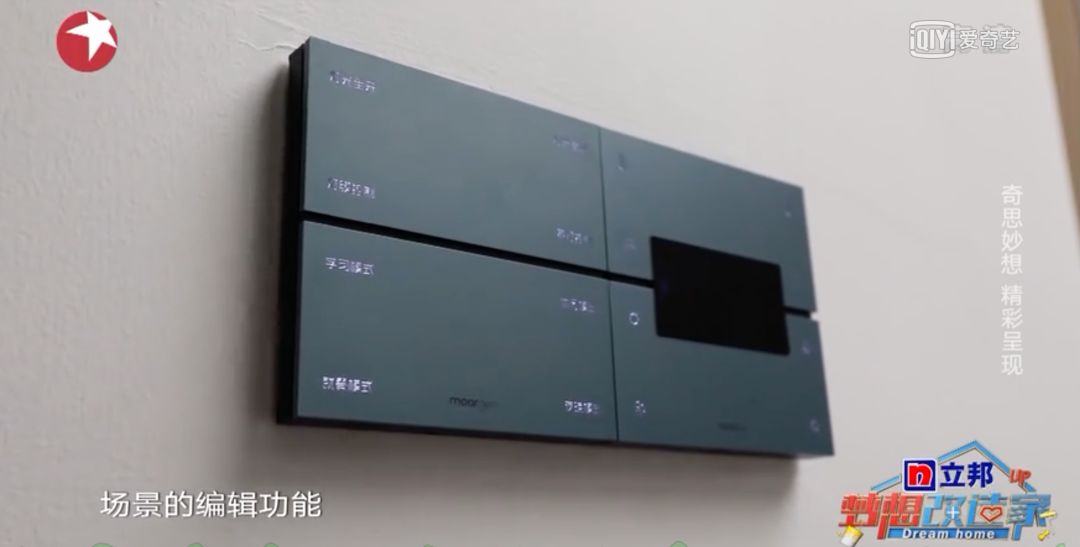
Everyone left comments and likes, wanting to know how to create a truly “smart” home.
This question is actually quite difficult to answer because everyone’s understanding of “smart home” is quite different.
For example, in the minds of entry-level users, a smart home probably means a Philips Hue bulb that turns on before they arrive home; a switch that can automatically cut off power, allowing remote control of all appliances at home; a Xiaomi camera that can reflect the situation at home and communicate in real-time to scare off intruders;

Hue smart light advertisement: A warm return home ritual. Image from Philips.
For them, the biggest problem should be that they have at least 10 apps installed on their phones. To feel the warmth of being welcomed by the home lighting, they often bump into utility poles while trying to identify icons.
Upgraded users might buy a gateway, trying to connect IKEA bulbs, Xiaomi’s Xiao Ai speaker, Moji Weather’s air fruit, and Yale smart locks on the door all through one app.
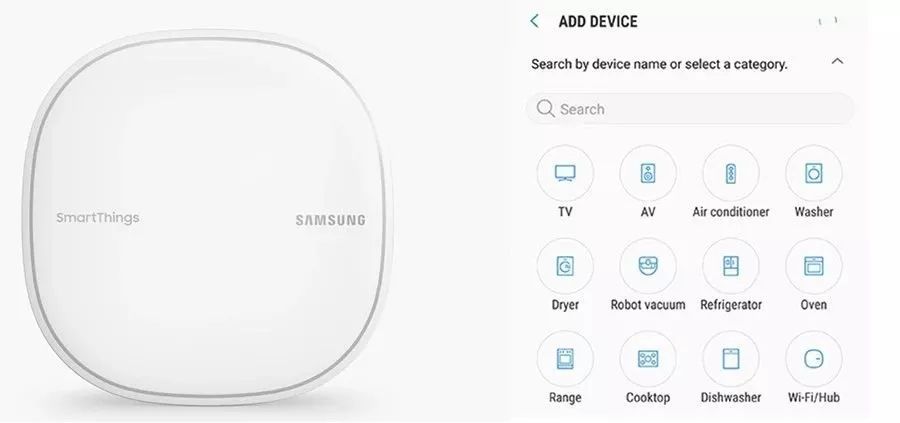
Samsung SmartThings gateway. Image from Samsung.
At this point, the biggest problem is likely incompatibility.
IKEA’s TRADFRI only works with Apple’s HomeKit, Yale’s locks only work with Samsung’s SmartThings, and Xiaomi’s gateway only works smoothly when facing Xiao Ai speakers. The air fruit is even worse, only works with itself…
So, hardcore players will go directly for the national standard KNX bus, as most smart home devices like Xiaomi, IKEA, and Philips comply with the KNX protocol.
In this way, almost all smart appliances can have custom functions and be integrated into one remote control:
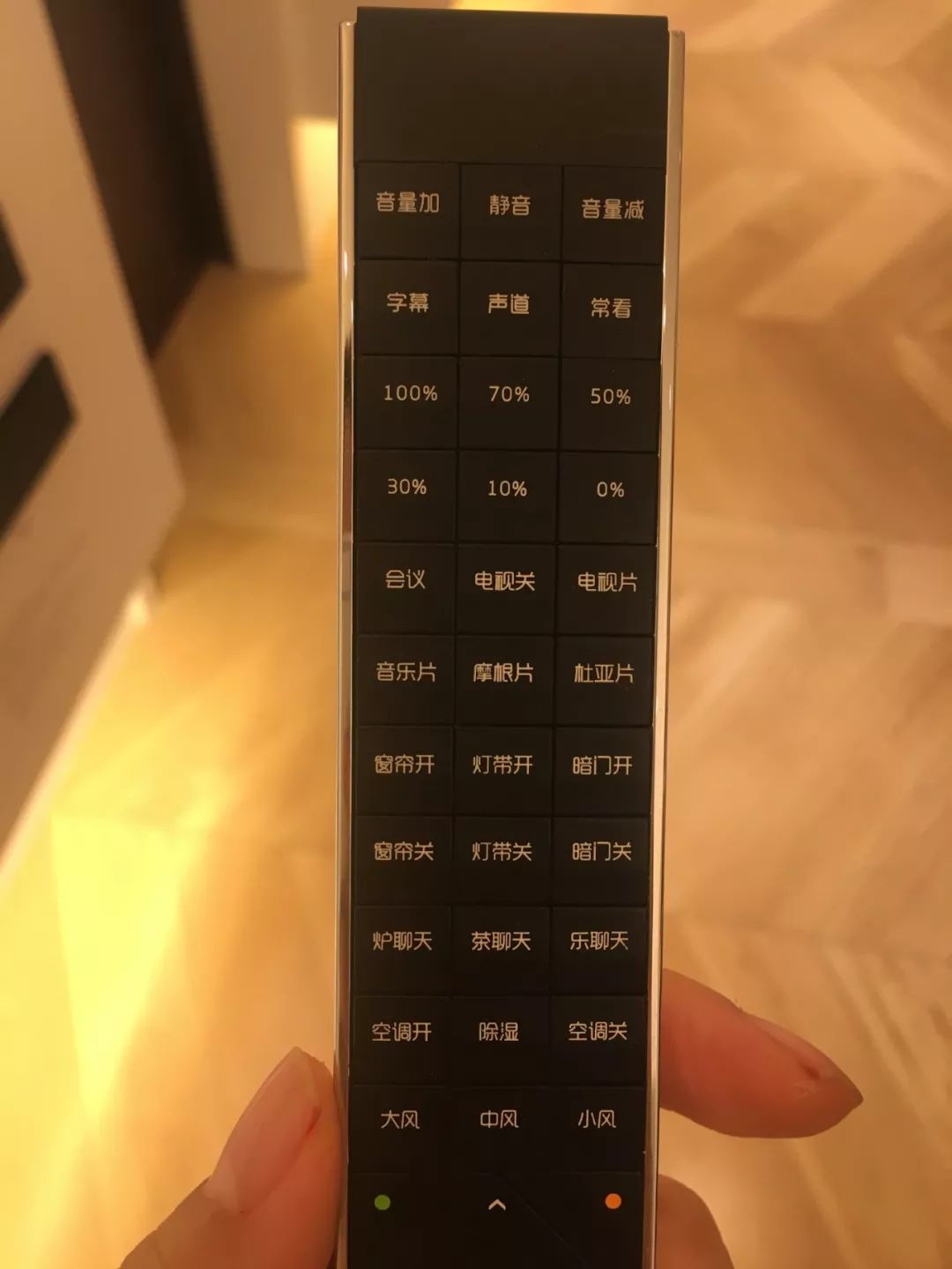
Moorgen’s remote control. Photo by Pudong Van Gogh.
Moreover, many functions can be linked, such as “one-click leave home,” where all appliances will turn off; “fireplace chat,” which will turn on the fireplace and sound system while dimming the lights; and it can also directly control the fresh air and heating systems based on the air fruit’s detection to adjust indoor temperature.

At this point, the biggest problem is that KNX relies on wired control, so walls and tiles must be knocked down to complete the installation.
As mentioned at the beginning, for the school district house in “Dream Home Makeover,” the wiring should be laid in advance during renovation, reserving half a wall for the weak current box:
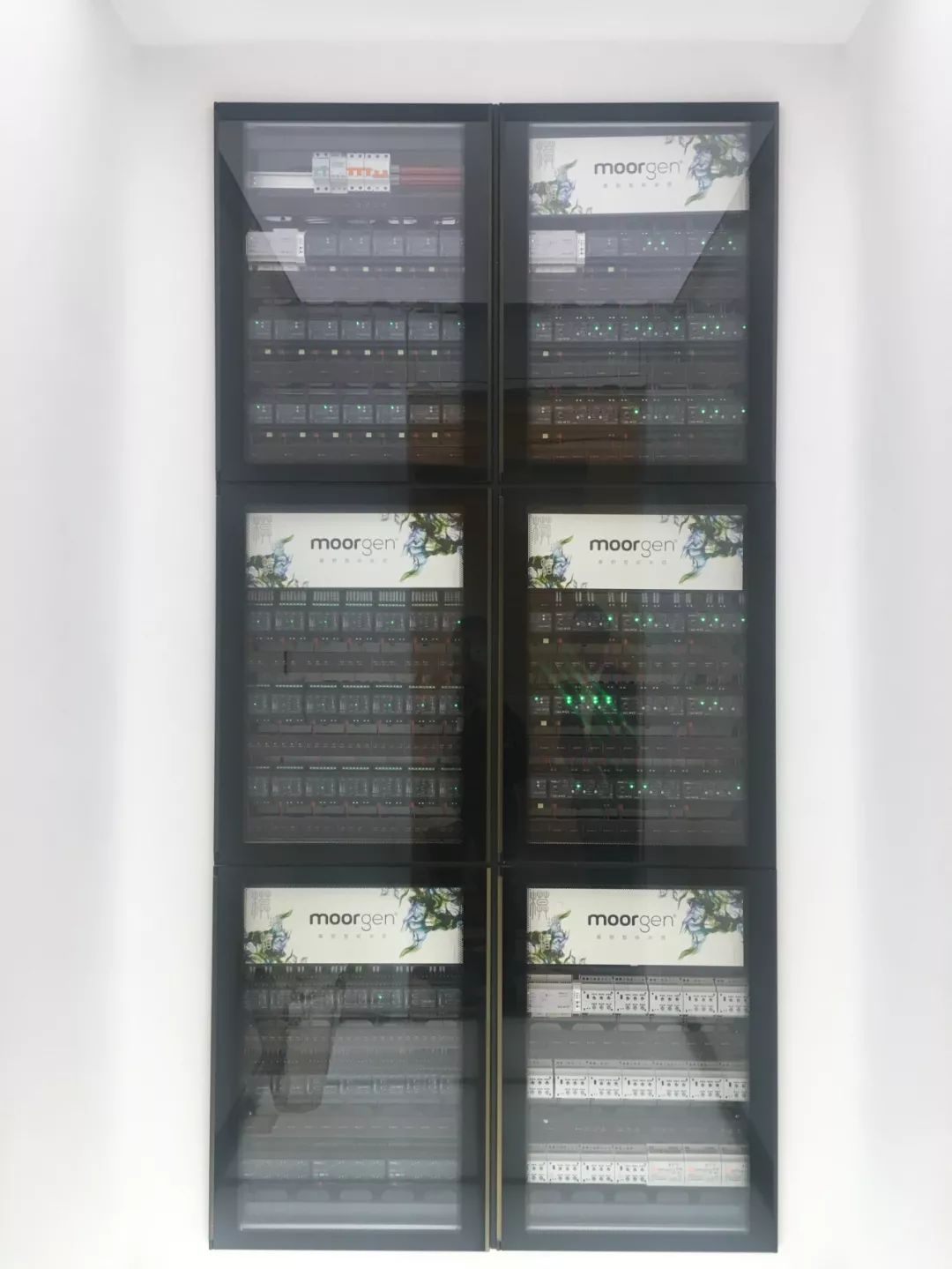
Moorgen’s KNX weak current box. Photo by Pudong Van Gogh.
All lighting, curtains, sound systems, TVs, and door/window wiring must be connected to the KNX bus, and only after professional designers and installers debug it can it be used.
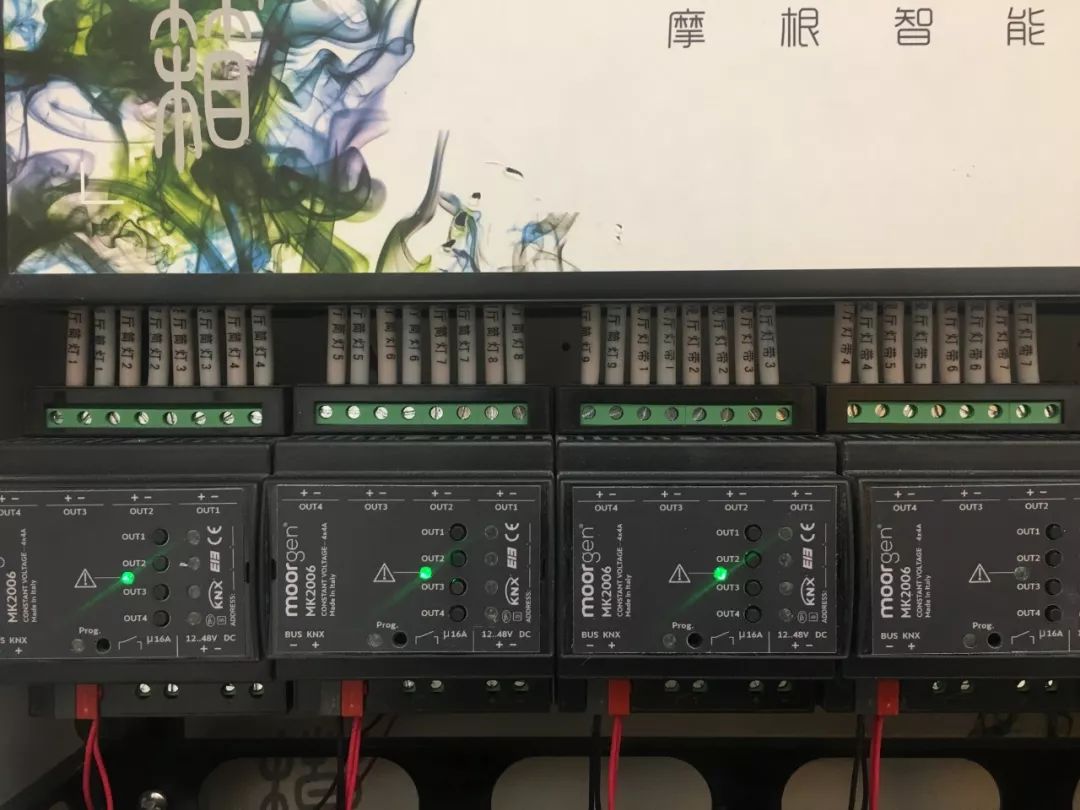
KNX eight-channel dimming module. Photo by Pudong Van Gogh.
Hardcore KNX players might think their home is the pinnacle of smart homes.
No, no, no, manufacturers do not think so.
In their eyes, smart homes seem to be another thing.
Everyone is doing research and development based on their understanding, hoping others can follow their lead, but the results are often unsatisfactory.
For example, Samsung made a refrigerator with a tablet:
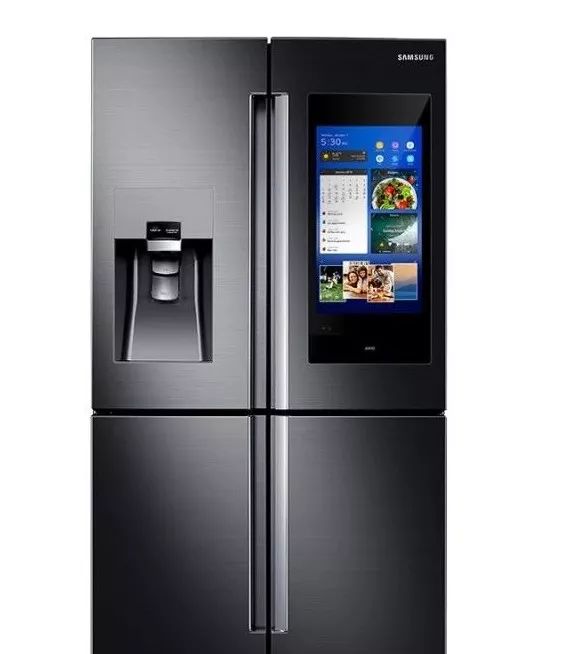
Image from Samsung.
You can write on the refrigerator, see high-definition pictures of leftover food on your phone, and it will remind you to restock based on your usage habits:

Samsung smart refrigerator advertisement. Image from Samsung.
The advertisement describes it like this: This is not just a refrigerator, but the communication hub of your home.
Doesn’t it look cool? But think twice, isn’t a refrigerator just supposed to keep things cold? If you want to know what’s inside, just open it.
I’m not Richard Hendricks; I don’t need the smart refrigerator’s backend database to save the company!
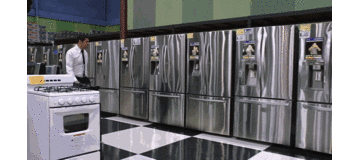
In the fourth season of “Silicon Valley,” the Pied Piper team hacked the smart refrigerator’s backend to use the cloud database to save the company.
Haier’s idea is even more unique, creating a magic mirror.

No, wait, it’s this one:
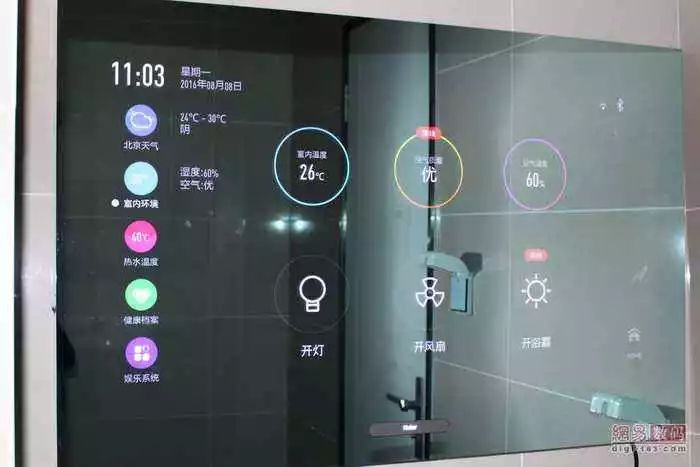
Haier’s magic mirror. Image from the internet.
Unlike Samsung’s refrigerator, Haier hopes the communication hub of your home is located in the bathroom.
In Haier’s vision, the entire mirror is the control panel for all household appliances.
You can adjust lighting, fans, and various hot water appliances on it, and while standing in front of the mirror, you can see how many pounds you gained since yesterday, and while washing your face and brushing your teeth in the morning, you can also watch movies and listen to the news.

A mirror that can connect to a weight scale. Image from Dream Home Makeover.
Let’s not even talk about weight; it’s too heart-wrenching. But who has time to watch the news on a weekday morning? Even putting on lipstick is done in the car!
In the eyes of the Japanese, the cosmic hub should be hanging from the ceiling.
For example, this Japanese Popin Aladdin lamp, which recently went viral on Instagram:
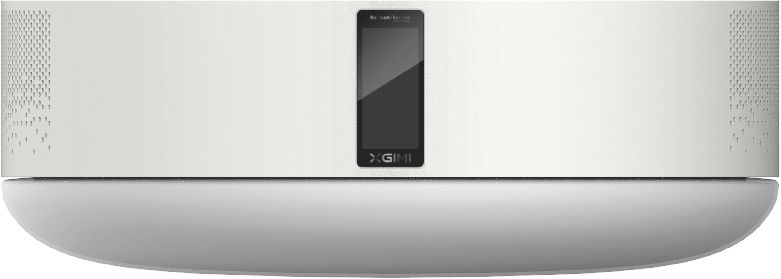
Image from aladdin.popin.cc.
It is said to be able to project any video content you want, like a genie:
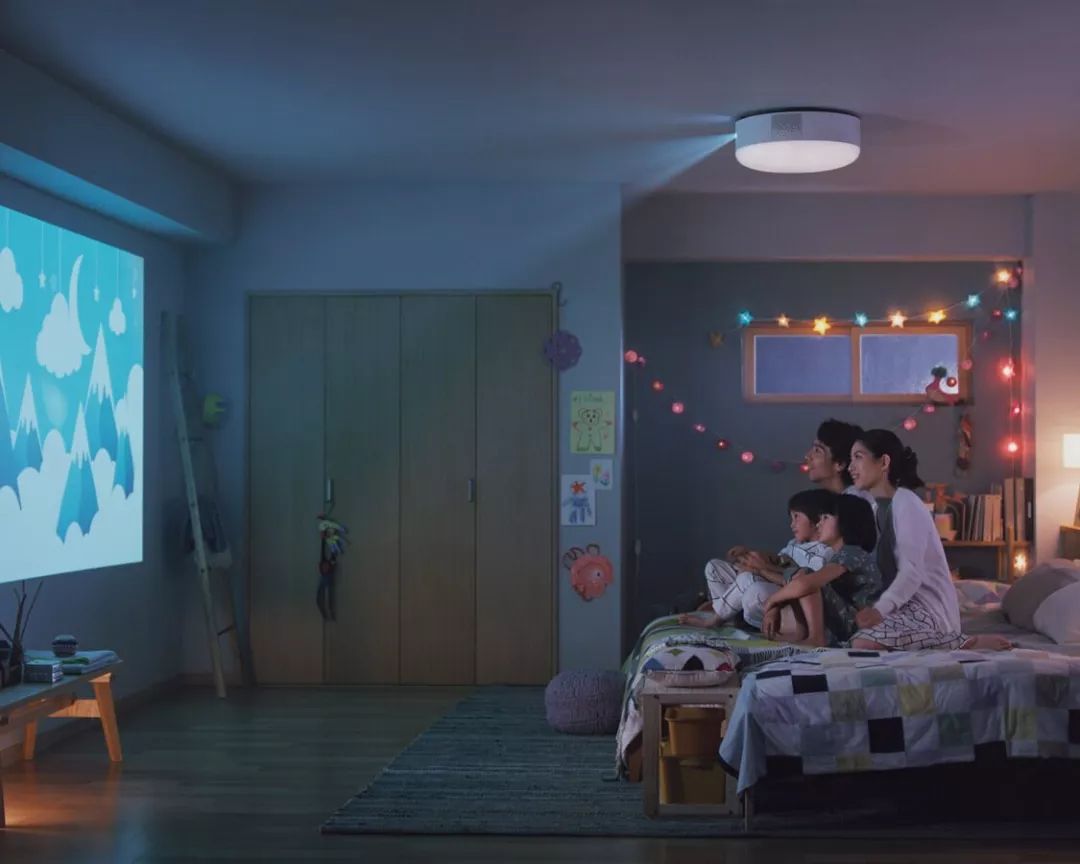
Image from aladdin.popin.cc.
The manufacturer has also given this lamp sound and alarm functions, and it can project TV programs onto the wall like a Xiaomi box, and it understands your various commands, moving countless people:
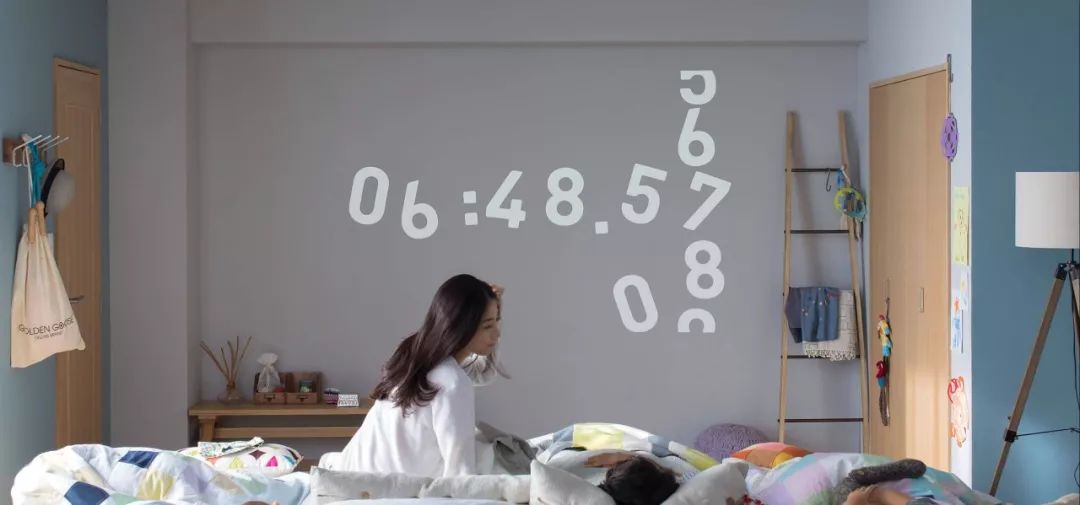
Image from aladdin.popin.cc.
I was also deeply shocked for five seconds at first, but after thinking for a while, I felt something was off. Under what circumstances would you talk to a lamp hanging from the ceiling?
Even the German company Miele, which makes ovens, is pondering how to control everything with the stove.
Not to mention that the mobile app can remotely control the oven, range hood, dishwasher, etc.:

Miele’s app panel. Image from Miele.
When the coffee machine is turned on in the morning, it will also open the curtains:
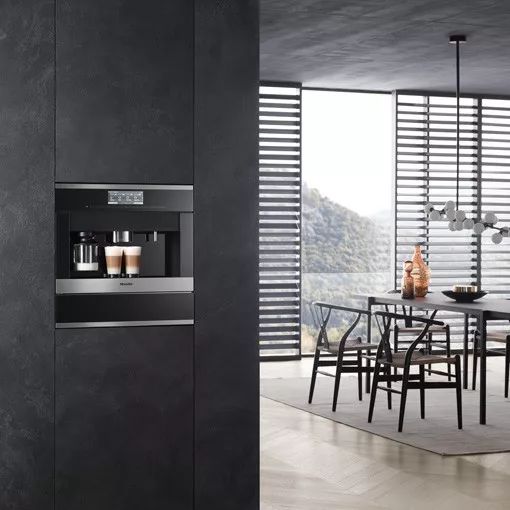
Image from Miele.
At the Milan exhibition this year, I saw Miele’s dream kitchen, where placing a food item on the countertop would immediately identify what material it is and how much carbohydrate it contains:
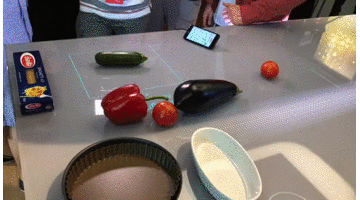
It also looks super shocking at first glance, but upon reflection, the design is quite peculiar. What food is this? Is it high or low in moisture? Can’t I see that with my eyes?
Amazon’s Alexa currently seems to be the only smart device on the right track, making houses no longer silent, prompting other giants to invest in smart speakers and interfaces, hoping that one day their products can communicate with Alexa.
As I write this, I suddenly remember a book by Bai Fan called “Home Appliance Mobilization,” where every appliance is alive, and computers and washing machines can even fall in love and run away from home.
Perhaps in the eyes of manufacturers, the appliances at home fighting to be the boss, with their heads broken and bleeding, is the ultimate state of smart homes.
Too naive.
In 2012, the State Grid had already released guidelines for the construction of smart communities.

In the eyes of the State Grid at that time, in addition to the Internet of Things in the house, smart communities should also provide convenient services such as shopping, doctor appointments, video calls, and community meal ordering without leaving home.
South Korea’s pace was even faster, having completed 80% of community smartization by 2002, spending a lot of money to allow residents to order McDonald’s within the community without leaving home and even online coupons; when going out, they could even communicate with their refrigerator online, saying, “I’m going on a trip, remember to let the vacuum cleaner mop the floor every day.”
Isn’t that impressive?
However, the State Grid at that time probably did not anticipate the emergence of “Ele.me,” an app that can even order takeout from McDonald’s outside the community.
Moreover, the biggest bug in smart homes that rely too much on wireless Wi-Fi is not incompatibility, but network security issues.
There have been reports of malware that can invade your home camera. It’s very likely that every move you make at home is being watched by others on the internet.

A monitored kitchen in Spain. Image from Ars Technica.
Smart homes can even become a means of domestic violence. The New York Times once interviewed some abusers who controlled their victims’ smart homes, such as surveillance cameras, locking victims outside, triggering infrared alarms, etc., to intimidate others.
Even more advanced smart devices can turn into weapons.
For example, seemingly harmless drones. In 2016, the Pentagon randomly dropped 103 drones from a fighter jet; they had a distributed shared brain, could act independently, and could adapt and collaborate after mutual adjustment.

It feels like the indestructible alien monsters described in “The Fortress” are really not far from us.
In “Homo Deus,” it was mentioned that after reducing famine, disease, and war, we now hope to upgrade humanity to godhood, making Homo sapiens into demigods.
Humanity exhausts all imagination and power to find the intelligent path to the future.
But even though we already have washing machines, dishwashers, and vacuum robots, and even a smart speaker that can command them, humanity is still not liberated from housework.
Sometimes it feels like Doraemon, with these smart homes having a nightmarish level of stupidity.

Image from https://t.cj.sina.com.cn/articles/view/6459684039/18106f4c700100mid4

Supposedly designed for housework, but ultimately making a mess of the house, the housekeeping robot.
So before discussing “smart homes,” what you should do is not rush to buy the hottest products of the moment (which may very well be out of business next year).
Instead, you should ask yourself whether you really need a makeup mirror that can report news, a refrigerator that can draw, or a control panel that can tell you that an eggplant is an eggplant?
William von Humboldt once said, “Life has only one peak to conquer – to experience everything that it means to be human.”
Everyone should do manual work well and feel the warmth of housework and daily life.
The most practical home tips
Millions of users’ real experiences, dare to buy without seeing the physical product
2018 Air Conditioning | Central Air Conditioning | Ducted Units
Fresh Air System 1 | Fresh Air System 2 | Breathing Home
Whole House Water Purification | Water Purifier | Water Purification Machine | Floor Heating
Dishwasher | Garbage Disposal | Integrated Stove | Sink
Air Purifier | Dryer | Vacuum Cleaner | Hair Dryer | Washing Machine
Small Appliances | Eye Protection Lamp | Smart Lock | Projector | Robot Vacuum Cleaner
Shower Head | Bathtub | Bathroom Heater | Electric Towel Rack | Washlet 1 | Washlet 2
Bed | Mattress | Summer Bedding | Bed Sheet | Pillow
Non-stick Pan | Steamer | Water Wave Oven | Rice Cooker
Chef Machine | Oven | Juicer | Coffee Machine | Knife
Dining Table | Placemat | Computer Chair
Home Cooling Artifacts | Flower Pot | Animal Furniture
Tap the mini program to buy home goods with one click:
